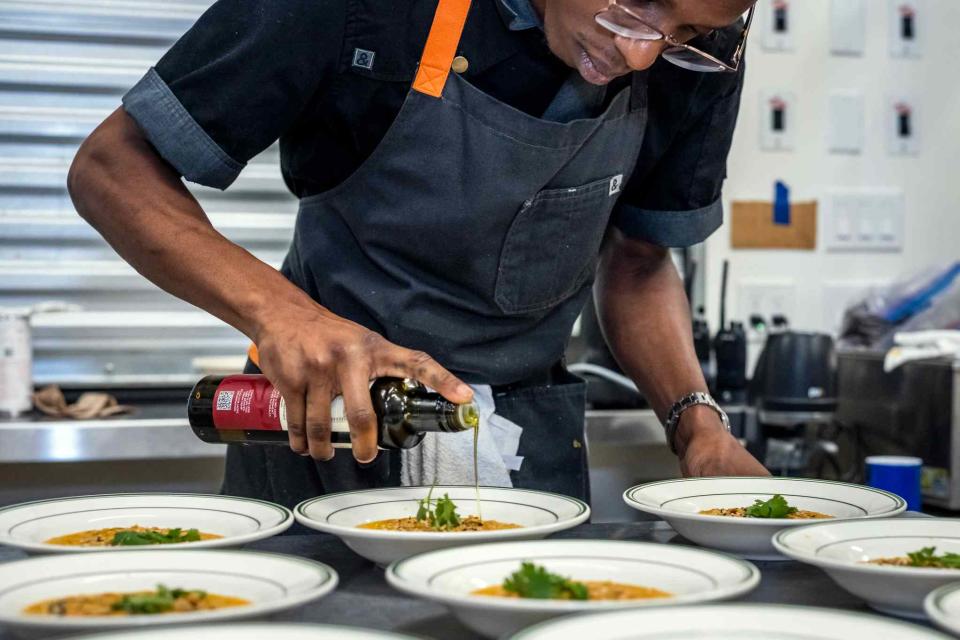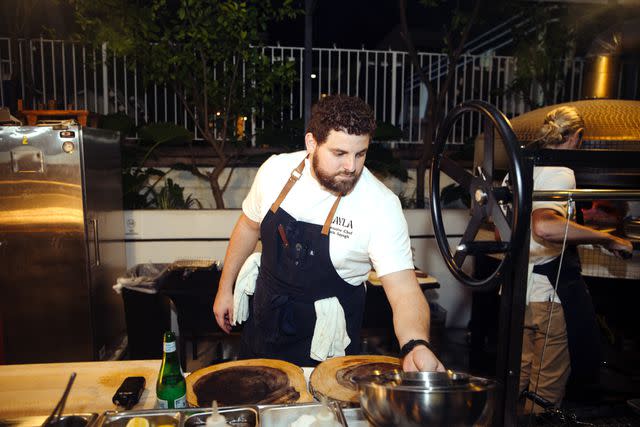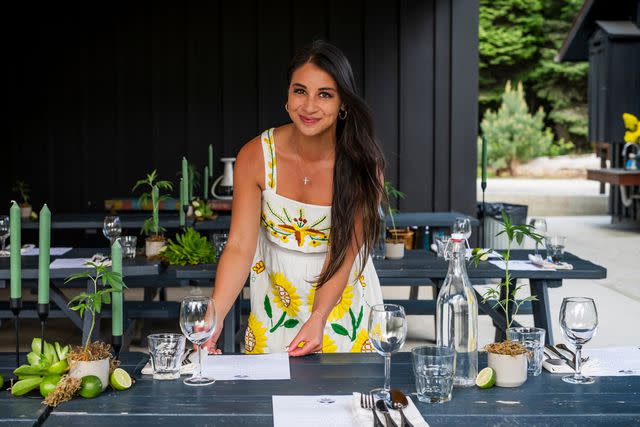What’s Next for Culinary Cannabis After the DEA Moves to Reclassify
This monumental legal shift could change everything — for the better.

Cynthia Glassell
Cannescape resident chef and ‘Chopped 4/20’ champion Solomon JohnsonAfter the first adult-use cannabis sale in the U.S. 10 years ago — and just 10 days after annual 4/20 celebrations across the country — comes the biggest news in marijuana policy to date. On April 30, the Biden administration recommended easing federal restrictions on cannabis by lowering it to a Schedule III substance as classified by the U.S. Drug Enforcement Administration (DEA).
Since 1971, cannabis has been categorized as a Schedule I drug, which is defined by the government as “a drug with no accepted medical use and high potential for abuse” in the same category as LSD, methamphetamines, and heroin. It’s mind-bending to comprehend, considering millions of citizens have had legal access to the plant state-by-state for over a decade.
Related: Cannabis Infused Drinks Are on the Rise, Here Are 4 POC-Owned Brands to Try
Today, 38 states have laws that allow for medical cannabis use; while 24 states allow for all use. And according to a recent Pew Research poll, 60% of Americans believe it should be fully legalized. A change to Schedule III would dramatically shift the way cannabis is perceived and used — endorsing its medicinal value and putting it next to widely accepted pharmaceuticals such as steroids, testosterone, and Tylenol with codeine.
While rescheduling signals progress, cannabis reclassification is unprecedented and is just the start of what experts estimate as a long road until the DEA formally makes a move. (A public comment period and Congress considering its own bills add to the complexity.)
Related: 9 Cannabis Recipes to Try at Home
“There’s no reason for DEA to delay,” FDA commissioner Robert Califf said at a hearing last month. “Without revealing too much about my age, I’m a child of the sixties, so it’d be nice if, in my lifetime, we came up with a regulatory scheme where — whatever your belief is about use of the product — the safety issues that you refer to are written into law.”
"For our business, we will be able to deduct basic expenses such as wages, rent, and marketing on our federal tax return. All other businesses operate this way, but we currently can’t."
Arana Hankin-Biggers, President at The Travel Agency
Many industry advocates argue that it’s not enough, and that the complete deregulation of cannabis is the real end goal. “Rescheduling marijuana is not a policy solution for federal marijuana criminalization or its harms, and it won’t address the disproportionate impact that it has had on Black and Brown communities,” said Cat Packer, director of drug markets and legal regulation at the Drug Policy Alliance, a non-profit organization that’s been advocating for marijuana legalization. It’s also a necessary first step for a billion-dollar business opportunity — and an overall win, which will open the door wider for cultural acceptance, funding, studies, research, tax breaks, and banking access.
For now, here’s an easy-to-digest dose of reactions from the cannabis industry’s top chefs, biggest brands, and successful storefronts on what it all might mean for the future of weed in the world of food and wine.
5 Culinary Cannabis Leaders on Marijuana Rescheduling
Jake Bullock, CEO at Cann
“We expect it to accelerate the regulation of infused beverages. Over time, we hope for the full normalization of infused drinks and a regulatory framework that allows the lowest potency drinks to be sold alongside alcohol (versus dispensaries-only) where they can have the biggest positive impact on wellness. Expanding access to low-potency THC drinks is imperative. Young folks continue to drink less alcohol than generations before them. Young parents hate waking up early with headaches. For empty nesters, every night is Friday night, and drinking alcohol each night of the week is shortening their health span. Cann is changing how we socialize and how we stay healthy.”

Cann Social Tonics
Jake Bullock cofounded Cann, a low-dose, THC-infused beverage company, with Luke Anderson while they were both consultants at Bain & Co.Kristi Palmer, Co-Founder and President at Kiva Confections
“We started back in 2010 in our home kitchen in California when the cannabis industry was just barely regulated and today, we sell infused edibles legally in 36 U.S. markets. We’ve seen many regulatory changes — some helped us move forward, and others backward — but none have been as significant as this announcement. This opens up more investments, both in companies and in much-needed scientific research, which will hopefully take cannabis edibles to the next level. The category has been dominated by gummies, and while it’ll always be a strong format, there are many more possibilities that have been challenging to develop due to lack of funds. I hope we’ll see more infused drinks and foods available in restaurants and mainstream stores, more cannabis sommeliers to help guide new consumers, and an increase in chef training to create incredible cannabis culinary experiences.”

Anda Chu / MediaNews Group / Bay Area News Group / Getty Images
Kristi Palmer cofounded Kiva Confections with her husband Scott, crafting their first products out of their home kitchen.Arana Hankin-Biggers, President at The Travel Agency
“Rescheduling will finally allow a loosening of regulations and make it easier for entrepreneurs to succeed. But this doesn’t impact our strategy in any way. We will continue to work toward providing the best shopping experience through superior design, quality products, and the most knowledgeable budtenders in New York. For our business, we will be able to deduct basic expenses such as wages, rent, and marketing on our federal tax return. All other businesses operate this way, but we currently can’t. For our nonprofit partner, The Doe Fund, this will mean more funding for programming that supports the homeless and formerly incarcerated with shelter, job training, and employment.”

THE TRAVEL AGENCY
Arana Hankin-Biggers cofounded New York-based Travel Agency, a cannabis dispensary that supports BIPOC-owned cannabis brands.Chef Chris Sayegh, Founder of The Herbal Chef
“The Herbal Chef is one of — if not the largest–cannabis hospitality groups in the world. This will allow businesses like mine and cannabis chefs to operate on a much bigger and official scale. It would offer us all the ability to work with banks and other government entities to prove what we have created has a real demand and place in epicurean culture. I believe that we still have a long way to go to have adequate licensing for on-site consumption. When bureaucrats make rules on things they do not fully grasp, it shows in the clunkyness of the regulations. Rescheduling cannabis is something to view as progress, but I am hesitant to be congratulatory since there is so much more work to do to course-correct the legislation.”

Courtesy of The Herbal Chef
Chef Chris Sayegh, who has a background in food chemistry and plant medicine, started The Herbal Chef as a way to elevate cannabis-infused dining.Chelsea Davis, Founder and CEO at Cannescape
“We’re a travel-centric cannabis dining company, and a major barrier to expansion beyond California is the discrepancy between state and federal laws. While I believe that this is a momentous decision that will greatly change how many people view marijuana and its consumption, this doesn't change too much for us in the short term. For example, we still won't be able to host infused retreats or dinners at properties with liquor licenses unless we can privatize the event. Even then, that poses other liabilities. Cannescape is the first of its kind, and as a result, our overnight retreats are somewhat of a test run for many areas where we host them (so far, in Sonoma, Napa Valley, and Mendocino). I hope that this sets the trajectory towards cannabis being treated—and regulated—like alcohol.”

Cynthia Glassell
Chelsea Davis, who started out as a lifestyle journalist who specialized in food and travel, founded Cannescape — a company that hosts overnight cannabis-centric retreats.For more Food & Wine news, make sure to sign up for our newsletter!
Read the original article on Food & Wine.


